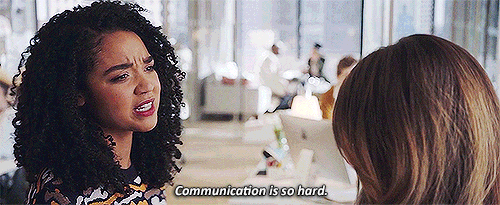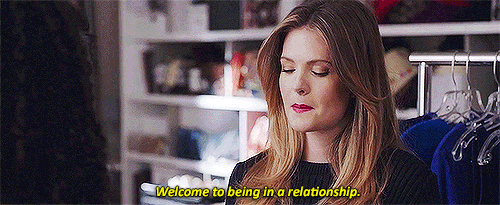How is the internet changing the way we connect with romantic partners?
Don't wanna be here? Send us removal request.
Quote
I don’t want to text you. I don’t want to call you. I want to be in your arms, Hold your hand, Feel your breath, Hear your heart. I want to be with you.
(via i-love-you-from-a-distance)
5K notes
·
View notes
Photo

“Toma mi mano a la distancia, déjame saber que siempre estarás aquí.”
— Jared Sandoval
160 notes
·
View notes
Text
My boyfriend wants us to start sexting and sending nudes because we can’t see each other in person. I’m afraid if I say no he’ll break up with me. What do I do?

Someone asked us:
my boyfriend wants us to start sexting and sending nudes because we can’t see each other in person. i’m afraid if I say no he’ll break up with me. what do I do?
First thing first: it’s not ok for someone to pressure you into any sexual activity, and you have the right to say no to anything that makes you uncomfortable — no matter what. Even if you’re super into your boyfriend, even if they seem trustworthy, and even though the COVID-19 pandemic is forcing people to get creative in their dating lives.
This is a tough time for everyone, and lots of people are trying to figure out new ways to stay connected to the people in their lives while they’re social distancing. But that’s no excuse for someone to push your boundaries, and sexting can have serious consequences.
Once you hit “send” on a pic or text, it’s out of your control — even if you delete it or use Snapchat or other hidden photo apps, someone can screenshot, save, or copy what you send and spread it around. When you like or trust someone enough to send them a sext, you might never imagine that they’d show your private messages to other people. But sometimes people do harmful things that you’d never expect, especially after a fight or a breakup. And if you and/or your boyfriend are under 18, sexting can even be illegal.
When you really like someone, saying “no” might feel hard. So here are some ways you can respond:
I really like you, but I’m just not comfortable with sending sexts or nudes. And it makes me feel like you don’t care about me when you keep pressuring me.
It’s not that I don’t trust you — if your phone got hacked, lost, or stolen, the pictures could get out.
My parents monitor my phone. If they saw our sexts or nudes, we could both get into trouble.
It’s illegal for me to send you nudes and/or it’s illegal for you to have them. We could be arrested.
Love means respecting each other’s boundaries.
My feelings aren’t up for discussion — I said no.
You deserve to be with someone who cares about you and doesn’t pressure you to do things that make you feel bad, unsafe, or uncomfortable. If your boyfriend keeps pushing you after you’ve already said no, or threatens to break up with you if you don’t do what he asks, that’s a sign that the relationship isn’t healthy. Trust your gut: if something your partner’s doing feels uncool to you, it probably is. Read more about how to handle sexting, relationships, and online privacy.
-Kendall at Planned Parenthood
1K notes
·
View notes
Text
THE NEW POLAROID: Internet-Mediated Sexual Behavior in Romantic Relationships
"Whether you’ve been in a relationship for a while or you’re just starting something new, sending flirty, dirty messages is a great way to spice things up and keep them fresh — especially if you and your partner are long-distance." -- Kimberly Truong for Refinery29, 2020.
“Sexual communication is just one of the many facets of life that has been affected by technology. Unfortunately, the technology changes more quickly than we can study its effects, which means that the field is always vast, and the questions are always many.” -- Michelle Drouin to Bustle, 2020.
Internet-mediated sexual behavior like sexually explicit text messages ("sexting") or sharing nude photographs of oneself ("sending nudes") has become a common part of today's digital landscape, but cultural attitudes surrounding them are not always perfectly salient. When couples take their bedroom behaviors online, is it out of necessity? Excitement? Need for variety? Do they occur mostly between partners in stable relationships, or between single individuals? And perhaps most crucially, can they be harmful? In order to answer these questions we will refer to studies evaluating the prevalence and correlates of sexting, which will be defined as the sending, receiving, or forwarding of sexually explicit messages, images, or photos over the Internet, especially through instant messaging or text.
Adolescent sexuality is a more complicated psychological field than adult sexuality; with identities still forming and parents still taking an active role in policing their behavior, the effects of their digital activities may be different or more pronounced than those of adults whose lives are largely unmonitored. Sexting among teenagers has become a national issue due to the increased social and legal consequences that minors face, including jail sentencing for distribution of "child pornography" and suicide or self-harm due to bullying from peers (Henderson & Morgan, 2011). However, survey results indicate that 75% of teens and 71% of young adults believed that sexting ‘can have serious negative consequences' (NCPTUP, 2008). To eliminate any confounding factors of legal minor status, I will address the research questions with literature that involves young adults rather than teens or middle-aged adults. In the most recent large survey data I could find, 87.80% of 870 heterosexual adults in the U.S. reported having sexted at some point in their lifetime, and 82.2% reported having sexted in the last year (Stasko & Geller, 2015). The majority of them (73.9%) sexted in the context of committed relationships, but a large portion (43%) sexted in casual relationships. A small percentage (12.1%) sexted in cheating relationships.
So why do young adults sext? A 2011 study of people's motivations for sexting reported that the number one reason among young adults is to "be sexy or initiate sexual activity," with other popular motivations including "to be fun and flirtatious" and "gaining attention from a partner," and less popular (30% of respondents) motivations being "pressure from friends or partners," and "as a form of self-expression" (Henderson and Morgan, 2011). Females were more likely than males to report feeling pressured to sext, and a separate study revealed that 61% of females who had sent explicit photos were pressured to do so at least once (Cox Communications, 2009). Clearly, though sexting is innocent and voluntary for the most part, pressure from others can play a large role in someone's decision to sext.
According to a large survey of young adults, sexters are more likely than non-sexters to engage in risky sexual behavior, report having multiple sexual partners, have unprotected sex, have sex after drinking or using drugs, and report a history of STIs (Benotsch et al., 2013). This data suggesting a higher prevalence of risky behaviors among sexters points to some negative effects of sexting. However, it appears to have positive effects on relationships, with more frequent sexting being correlated with relationship commitment and sexual satisfaction (Stasko and Geller, 2015). A large study of undergraduates found effects split down the middle, with half reporting positive sexual or emotional consequences and half reporting negative consequences; the same study found that sexts sent in serious as opposed to casual relationships have more negative and fewer positive consequences (Drouin et al., 2017).
In summation, it appears that sexting, like most things in life, can have both positive and negative effects depending on the people involved. However, it appears to be a safer and more beneficial behavior within the context of committed relationships rather than casual or cheating relationships. And with most young adults participating in it and having largely positive attitudes towards it, it has become an inevitable part of today's relationship landscape, so mitigating its negative effects and encouraging it to occur only in appropriate contexts should be the top priority in social and political contexts.
Synopsis by I. Hanes.
REFERENCES
Cox Communications. “Teen Online and Wireless Safety Survey: Cyberbullying, Sexting, and Parental Controls.” Cox Communications, 2009.
Benotsch, Eric G., Daniel J. Snipes, Aaron M. Martin, and Sheana S. Bull. “Sexting, Substance Use, and Sexual Risk Behavior in Young Adults.” Journal of Adolescent Health 52, no. 3 (2013): 307–13. https://doi.org/10.1016/j.jadohealth.2012.06.011.
Drouin, Michelle, Manda Coupe, and Jeff R. Temple. “Is Sexting Good for Your Relationship? It Depends ….” Computers in Human Behavior 75 (2017): 749–56. https://doi.org/10.1016/j.chb.2017.06.018.
Henderson, Lori, and Elizabeth Morgan. “Sexting and Sexual Relationships Among Teens and Young Adults.” McNair Scholars Research Journal 7, no. 1 (2011).
Klettke, Bianca, David J. Hallford, and David J. Mellor. “Sexting Prevalence and Correlates: A Systematic Literature Review.” Clinical Psychology Review 34, no. 1 (2014): 44–53. https://doi.org/10.1016/j.cpr.2013.10.007.
“Sex and Tech.” The SAGE Encyclopedia of World Poverty, 2008. https://doi.org/10.4135/9781483345727.n573.
Stasko, Emily C., and Pamela A. Geller. “Reframing Sexting as a Positive Relationship Behavior.” PsycEXTRA Dataset, 2015. https://doi.org/10.1037/e528002015-001.
0 notes
Photo










for you.
love songs by the decade
[50s] [60s] [70s] [80s] [90s]
10K notes
·
View notes
Text
Non-Appearance Related Compliments
You light up the room
You have the best laugh
You inspire me
I love how passionate you are
You make the world better just by being in it
You make me feel comfortable being myself
You make this world so much more beautiful just by being in it.
You’re an amazing friend and you always support me
I love hearing from you!
Your mind is so powerful!
34K notes
·
View notes
Photo

its not living (if its not with you) - the 1975
30K notes
·
View notes
Text
Its a bit difficult to go on dates as often because of COVID-19 butttttt

We made do
160 notes
·
View notes










